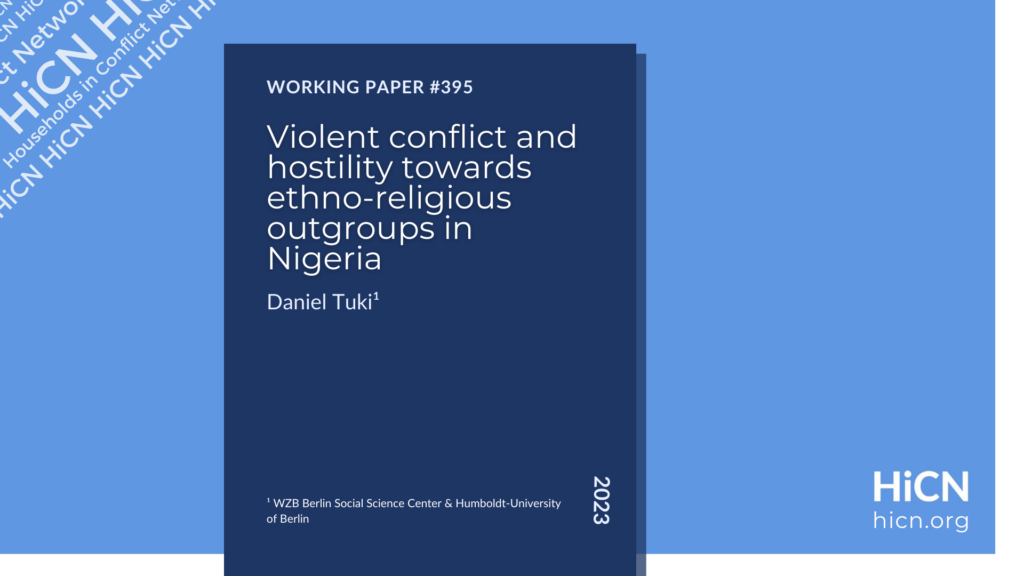
This study examined the effect of exposure to violent conflict on hostility towards ethnic and religious outgroups among Nigeria’s population and among its two major religious groups (Christians and Muslims). Violent conflict had a robust positive effect on outgroup hostility among the Nigerian population and among Christians. A plausible mechanism behind this finding is that the threat posed by violent conflict strengthens ingroup cohesion, erodes trust in outgroup members, and makes intergroup boundaries salient. This is especially so when the opposite party to the conflict constitutes a distinct cultural outgroup. The main conflict affecting Christians involves nomadic pastoralists of Fulani ethnicity, who are Muslims. Although both Christians and Muslims associate Muslims with extremism, Christians are more likely to do so. Among Muslims, violent conflict rather had a weak positive effect on outgroup hostility that was not robust to alternative model specifications. The null effect might be because the main conflict affecting Muslims – the Boko Haram insurgency – does not involve Christians. A significant number of Muslims are also affected by conflicts involving nomadic Fulani pastoralists.